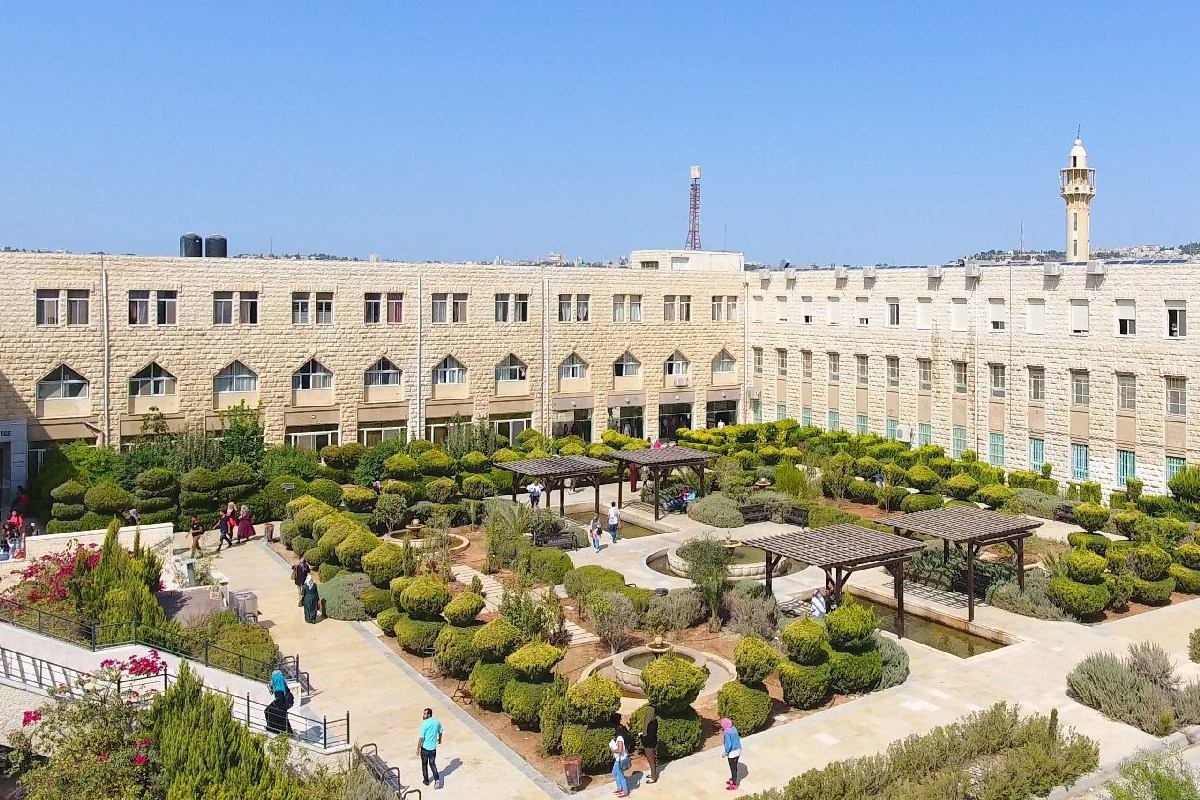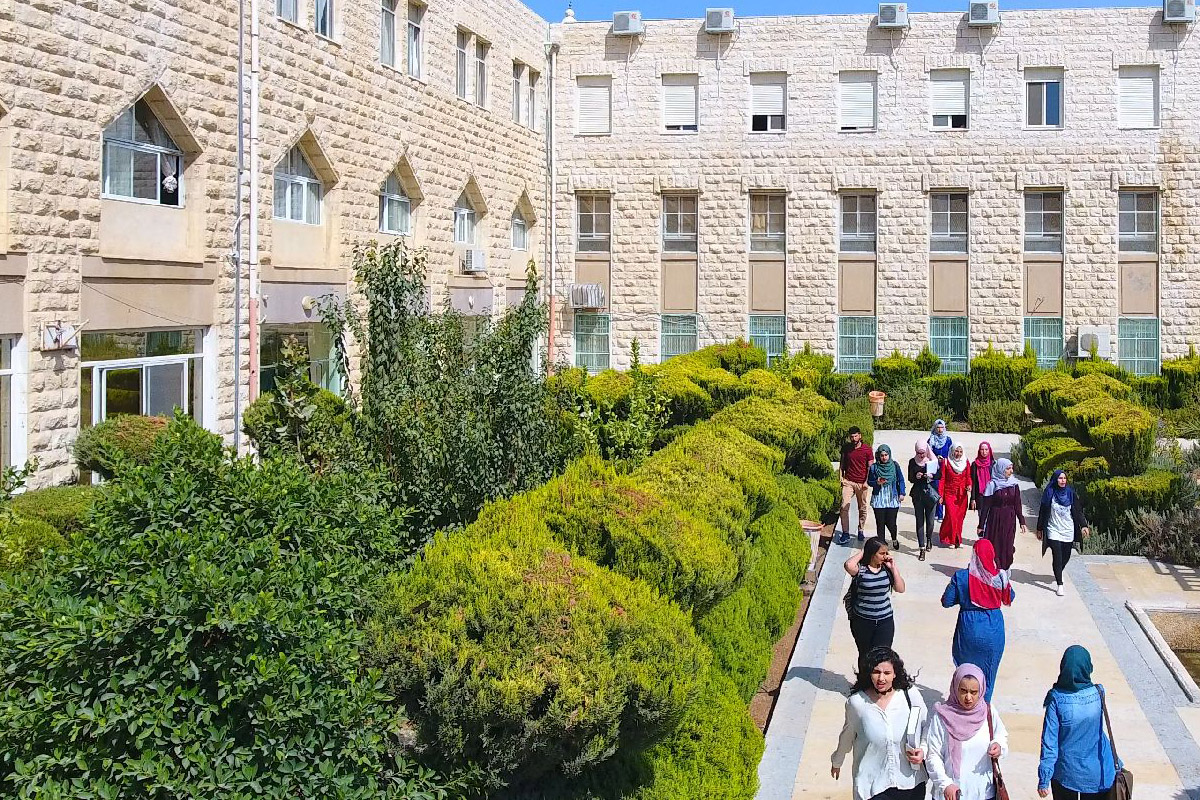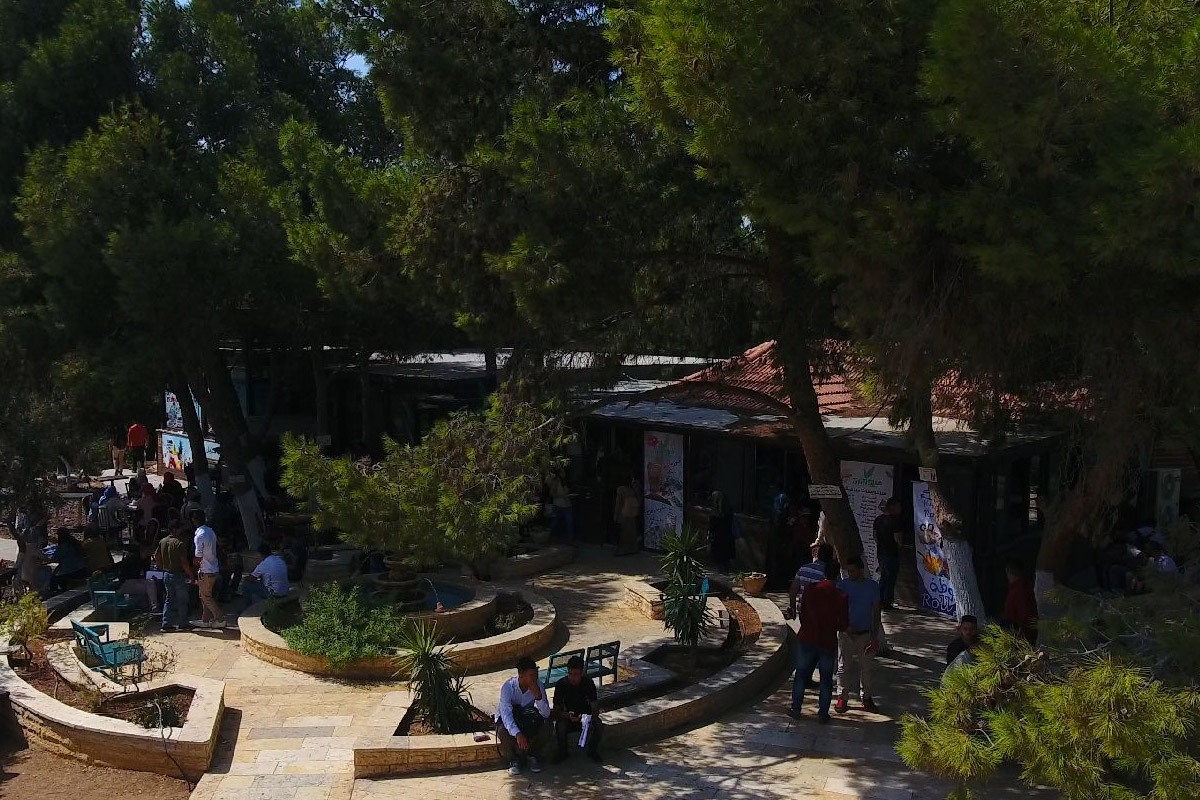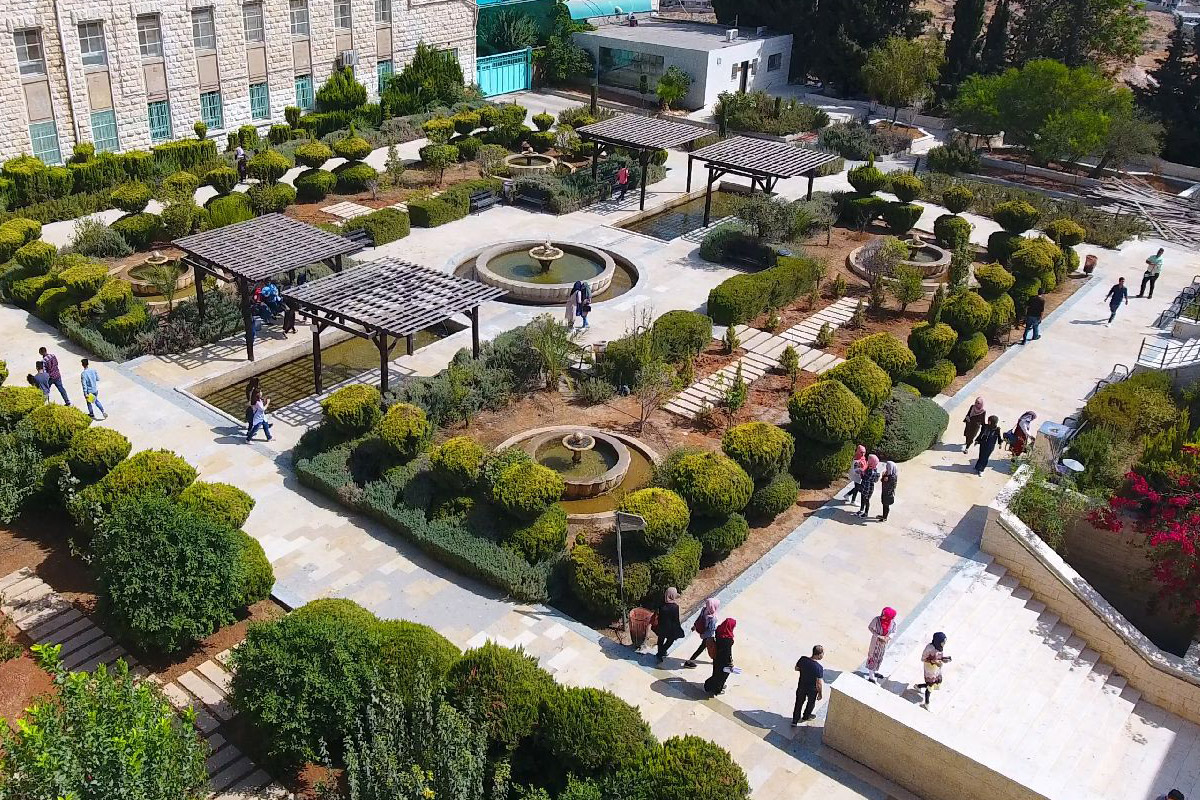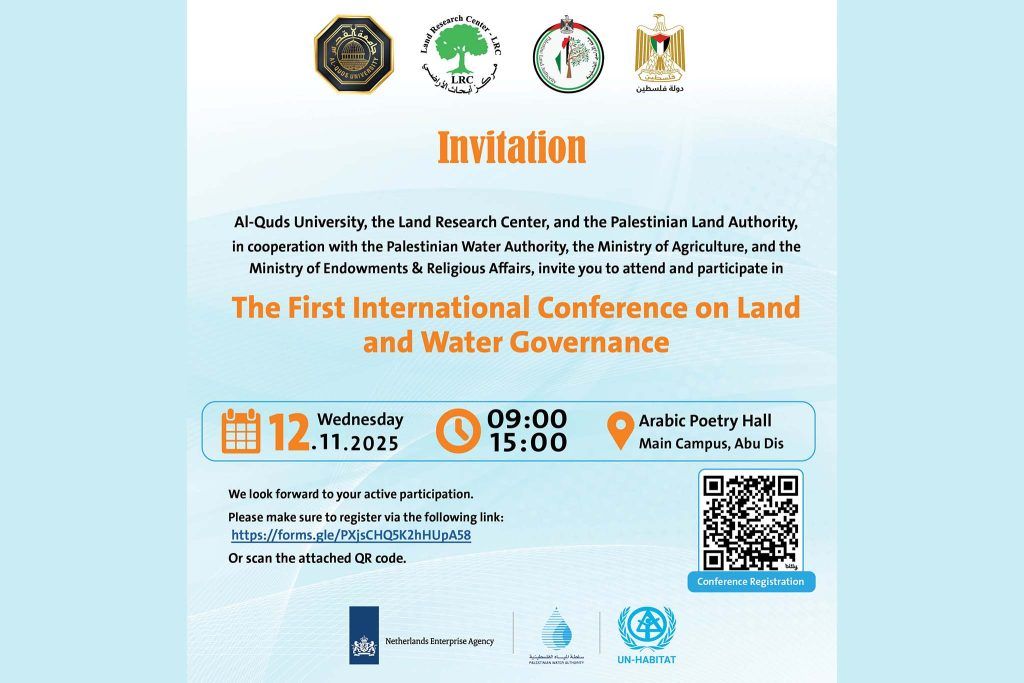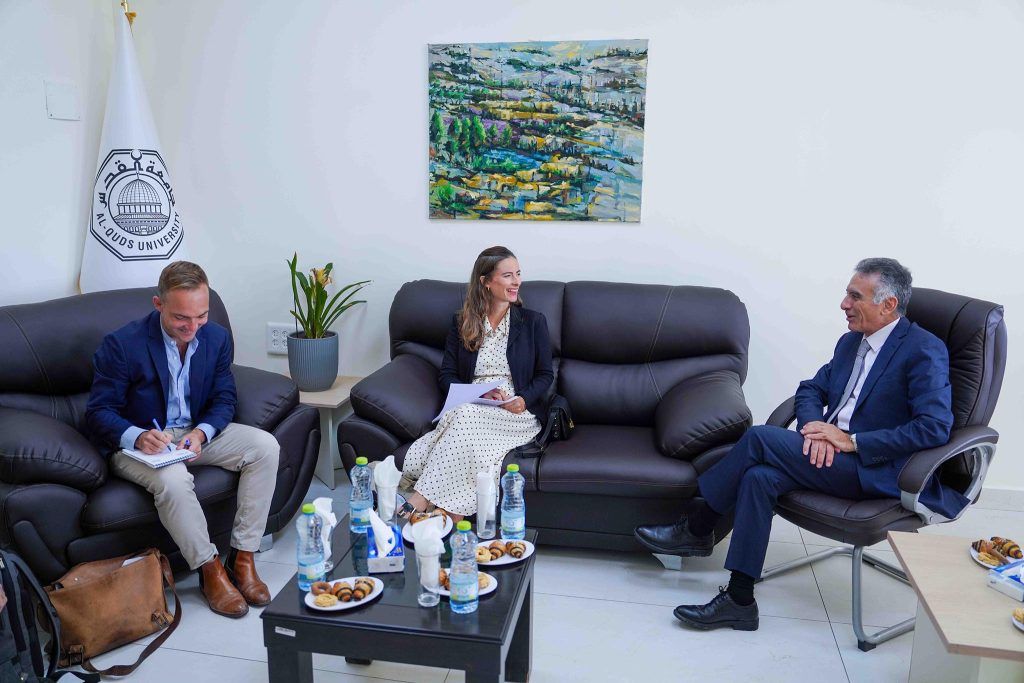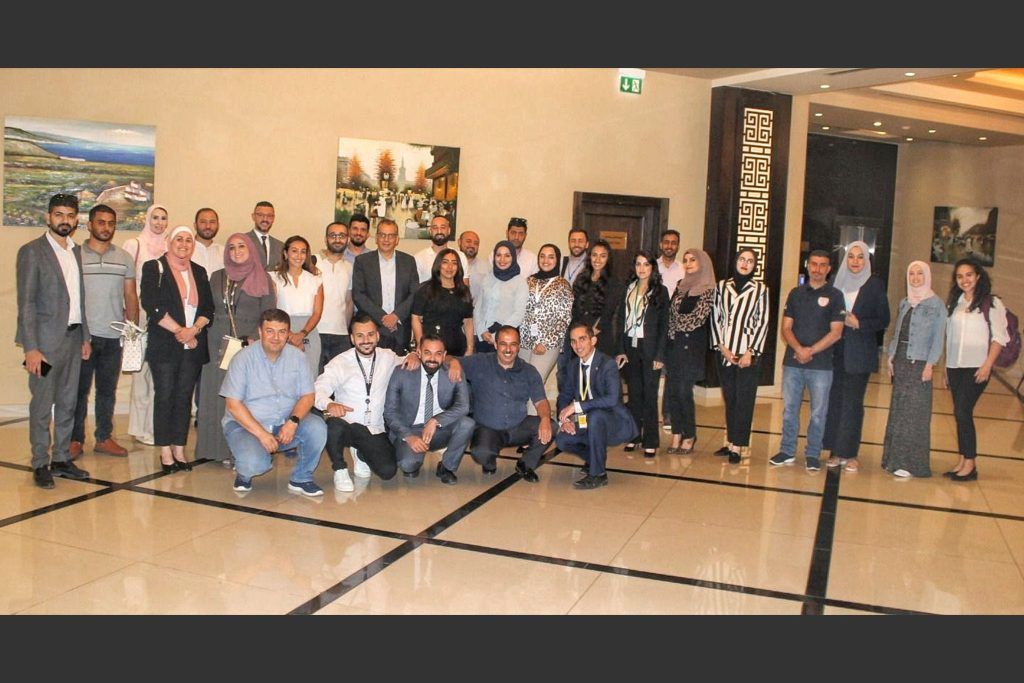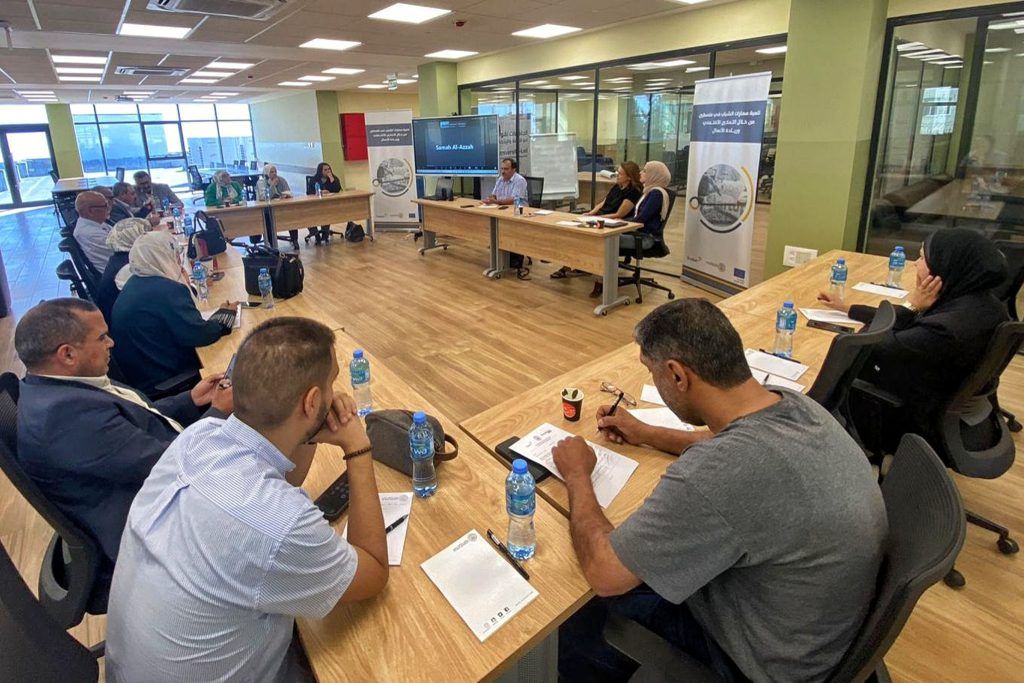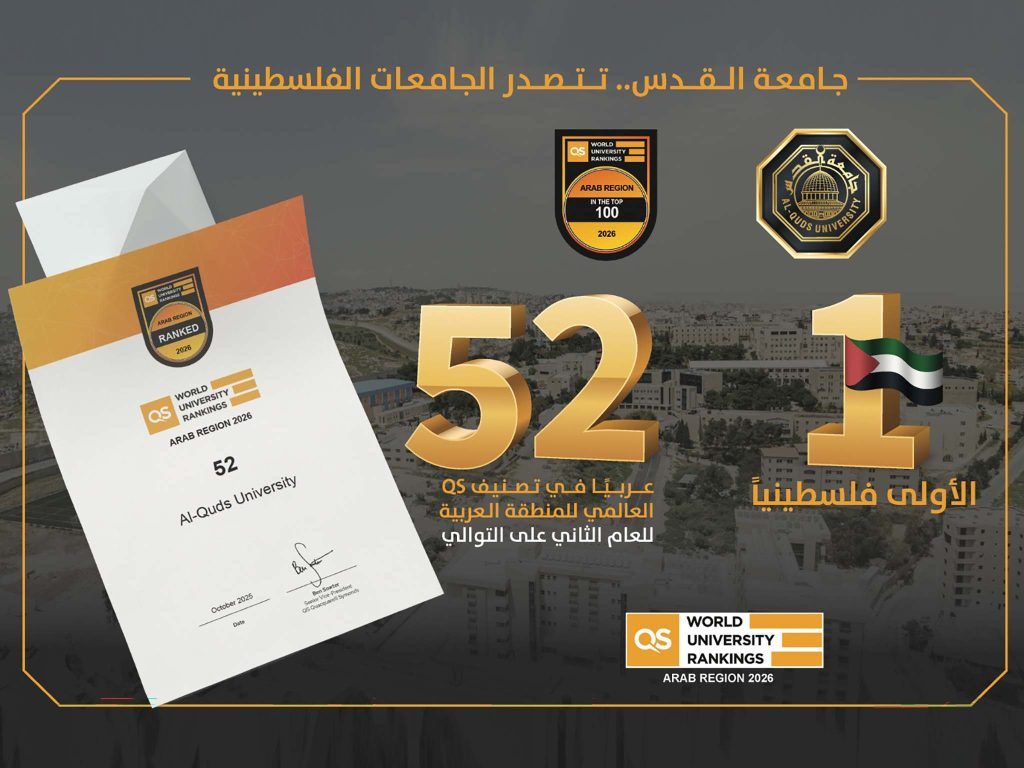Faculty of Public Health
We are proud of our specialized programs in public health sciences, our research and community activity, and our presence in an integrated medical and health sciences complex at Al Quds University.
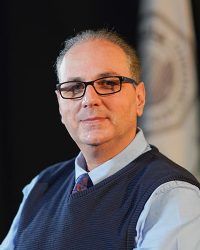
Dr. Hazem Agha
Dean of the Faculty of Public Health
I am honored to welcome you to the website of the Faculty of Public Health at Al-Quds University and it is my pleasure that you are interested in learning more about the faculty and its programs. The Faculty of Public Health is keen to create a high-quality educational environment for its students.
I am honored to welcome you to the website of the Faculty of Public Health at Al-Quds University and it is my pleasure that you are interested in learning more about the faculty and its programs. The Faculty of Public Health is keen to create a high-quality educational environment for its students. Since its establishment in 1997, the faculty has been working on developing distinguished academic programs through its specializations that grant a bachelor’s degree in public health nutrition. The faculty offers four postgraduate programs with different tracks. It offers a master’s program in public health with the epidemiology, environmental health, health management, and family and population health tracks. In addition to a master’s program in community mental health with the trauma track and psychotherapy track, as well as a master’s program in health policies and management. And recently, a master’s program has been launched in prevention and disease control. Moreover, admission to the doctoral program in public health, the first of its kind in Palestine, for the academic year 2021-2022, has begun.
Our faculty is also concerned with study plans, scientific research in the field of public health, training courses, educational events and health awareness provided by the faculty to serve the community. The faculty also aims to qualify experienced health cadres, and train the workforce in health sites at a high level in public health and health informatics programs, which are provided by an elite group in the field of public health. The faculty also seeks to raise the levels of quality performance through the development of scientific and training programs to enhance the outcomes of health education with distinguished and skilled workers, which contributes to achieving the desired goals, and enhancing the values of cooperation among faculty members in developing curricula and applying quality standards. Our faculty is working efficiently to raise the efficiency of its academic outputs, and keeping pace with scientific progress in its various fields. In order to achieve the goal of local leadership and regional excellence among public health faculties, which befits the name and prestige of Al-Quds University.
In light of the reality posed by the COVID-19 pandemic, the faculty and staff have worked tirelessly to ensure a smooth transition to the new online learning environment while maintaining the high educational quality for which the faculty is known. On the other hand, our outstanding students rose to the challenge of completing their studies remotely.
The graduates of the faculty of Public Health record high employment rates, as they were able, through the depth of their knowledge and the breadth of their professional experience, to go beyond just looking for work to becoming a target for many jobs that are looking for them.
Dear Students, if you want to “learn, discover, and make the world safer”, join the vibrant world of public health, there is no better place than the faculty of Public Health at Al-Quds University and no better time than now.
With much respect and appreciation,
Dr. Hazem Agha
Dean of the Faculty of Public Health
Faculty of Public Health
The Faculty of Public Health (FPH) at Al-Quds University was established in 1997, the first school in this field in the Palestinian universities. The mission is to contribute to the improvement and promotion of the health and well-being of the Palestinian society by providing quality education and research in the fields of public health, as well as contribute to the development of efficient and quality health care system.
The FPH has two branches, one in the main campus in Abu Dis and the other branch in Gaza City. The Faculty was awarded the full membership of the Association of Schools of Public Health in the European Region (ASPHER (in 2013 and was the first educational institution to receive the full membership from outside the European region.
The FPH works to provide the necessary academic programs to prepare specialized professionals in the fields of public health to serve the needs and priorities of the Palestinian society. It also undertakes research that addresses the needs and priorities of community health and promotes using evidence in health policies and programs. The Faculty also contributes to responding to community health needs through building partnerships with community organizations that works on promoting health.
The FPH offers the Bachelor of Public Health Nutrition since 2011. This program is distinguished in terms of its focus on nutrition and its relation to the health of the individual and society.
The faculty also offers four postgraduate programs) master degree) with different tracks. Including a master’s program in public health with the epidemiology, environmental health, health management, family and population health tracks, in addition to a master’s program in community mental health with the trauma track and psychotherapy track, as well as a master’s program in health policy and management. And recently, a master’s program in Prevention and Control of Infectious Diseases has been launched.
Acceptance has begun for the doctoral program in public health, the first of its kind in Palestine for the academic year 2021-2022.
The FPH is constantly striving to strengthen its programs and develop them to best serve the needs of the Palestinian community.
The FPH currently has 266 students in the two branches, 51 of whom are undergraduate and about 215graduate. The team of FPH consists of 11 full-time faculty members in the two branches who hold doctorate degrees in diverse fields and with significant local and international expertise in health research as well as about 20 part-time faculty members. In addition to 4 administrative staff in both branches.
It worth mentioning that graduates of the FPH work in many leadership positions in the Palestinian public and private health sectors as well as in international institutions and contribute to the development of the Palestinian health care system.
The study in the graduate programs is run on a part-time basis, where the completion of the program requirements takes two years of study period in 4 semesters. Students enrolled in graduate programs have to devote two full days weekly to the courses work and research activities. The programs include theoretical courses, as well as applied and health research activities. The programs also characterized by the practice and applications in health institutions in addition to the community and field activities during the study period.
We are proud of our specialized programs in public health sciences, our research and community activity, and our presence in an integrated medical and health sciences complex at Al Quds University. Our slogan is achieving excellence in education and research in public health.
Offered Programs
Academic Staff

Asma M. Imam, is an Associate Professor in Health and Community Studies, Coordinator of Health Policy and Management Master’s program, and Former dean of school of public health at Al Quds University. She got her Bachelor Nursing degree from Jordan University and Master of Science in Nursing Administration from Indiana University /Purdue University/USA and her PhD in Health and Community Studies- De Montfort University, Leicester/England. She has long experience in developing and managing graduate programs in nursing and health, besides working on research projects with international organizations. Her main research area is quality of life with emphasis on cancer patients. Further research areas are quality of healthcare and reproductive health. Moreover, Imam has great interest in human rights in patient care.
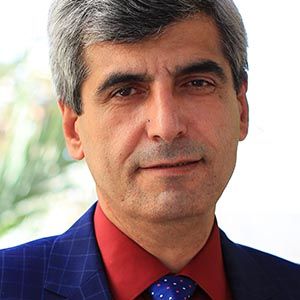
Public Health Specialist, Human Resources Management Specialist-in health sector “focus on education management” (Doctorate from Sheffield/UK and former Dean of the Palestine School of Nursing), Coordinator of Public Health Programs at Al-Quds University (in Gaza) with over 38 years of work in the Academic and social services including with Ministry of Health, Ministry of Social Affairs, universities, NGOs (notably as Deputy Chief of Party) focusing on teaching, training and developing systems related to public health, management systems, health economics, health information system, mother child health and nutrition strategies, human resource management in health, quality improvement in health sector, staff motivation, research, programs monitoring and evaluation and humanitarian interventions.
Extensive experience in developing strategies/plans for academic programs, large and small scale programs/organizations; including but not restricted to; participating in developing postgraduate programs at School of Public Health, leading the development of the strategic plan for HANAN Mother Child Health Project (in 2005-21 Million dollar), MARAM Project (in 2001-28 Million dollar), Union of Health Work Committees (4 subsequent plans-1985-2008), Women Affair Association (2010), Near East Council of Churches (2011), and lately leading the team who developed the Strategic Health Plan-Gaza (2014-2018 and 2021-2024).
Rich experience in conducting evaluation and monitoring activities in social services including health and education, social protection, social policy and humanitarian interventions at the program level, project level and organizational level. This includes designing and conducting monitoring and evaluation activities. Unique experience in working with adolescents, youth, particularly in the 10-year global longitudinal and participatory action research titled “Gender and Adolescence: Global Evidence”.
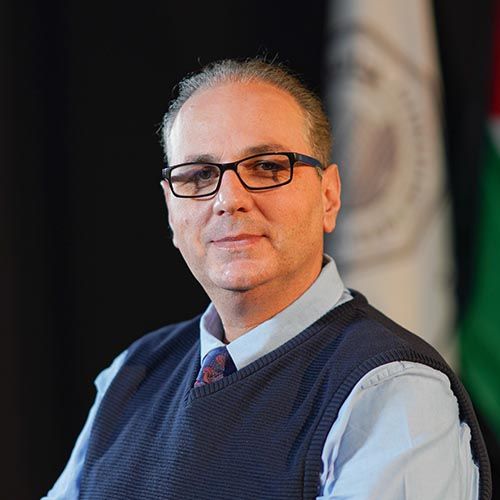
Dr. Agha is an assistant professor of Public Health Nutrition in the Faculty of Public Health, Al-Quds University, Jerusalem. He joined the faculty in 2004.
He received his B.Sc. in Science: Major in Biology /Minor in Medical Technology from Al-Quds University in 1997, his master degree of Public Health from Al-Quds University in 2004 and his Ph.D. degree from the High Institute of Public Health-Alexandria University, Egypt in 2010.
He worked on developing the bachelor program of Public Health Nutrition in the faculty.
Dr. Agha was the chair of the department of Public Health Nutrition, chair of the Public Health Nutrition department council, member of the university academic council since the year 2011-2021.
His research interest mainly includes Micronutrients status and dietary habits among school children, sport nutrition, nutrition supplements and obesity.
Dr.Agha published several peer-reviewed papers in recognized international journals
1- – De Backer C, Teunissen L, Cuykx I, Decorte P, Pabian S, Gerritsen S, Matthys C, Al Sabbah H, Van Royen K and the Corona Cooking Survey Study Group (2021) An Evaluation of the COVID-19 Pandemic and Perceived Social Distancing Policies in Relation to Planning, Selecting, and Preparing Healthy Meals: An Observational Study in 38 Countries Worldwide. Front. Nutr. 7:621726.
2- Mehmet Eskin, Nazlı Baydar, Mayssah El-Nayal, Nargis Asad, Isa Multazam Noor, Mohsen Rezaeian, Ahmed M Abdel-Khalek, Fadia Al Buhairan, Hacer Harlak, Motasem Hamdan, Anwar Mechri, Ulker Isayeva, Yousef Khader, Aqeel Khan, Alaa Al Sayyari, Albaraa Khader, Bahareh Behzadi 6, Cennet Şafak Öztürk, Hazem Agha, Laifa Annisa Hendarmin, Murad Moosa Khan. Associations of religiosity, attitudes towards suicide and religious coping with suicidal ideation and suicide attempts in 11 muslim countries (2020). Social Science & Medicine 265(113390):1-11.
3- Akram Amro , Hadeel Tamimi , Haneen Dhaidel , Hazem Agha , Yaser Issa. The Effects of Electronic Waste Burning on Lead Concentration in Water and Blood in South West Hebron: Descriptive-Comparative Study. International Journal of Toxicology and Environmental Health Vol. 3(2), pp. 036-044, October 2018.
4- Abdeen Z, Brunstein-Klomek A, Nakash O, Shibli N, Nagar M, Agha H, Hallaq S, Kanat-Maymon Y, Juerges H, Levav I, Qasrawi R. The Association between Political Violence and the Connection between Bullying and Suicidality among Palestinian Youth. Suicide Life Threat Behav. 2018 Feb; 48(1):95-104.
5- Susan J. Massad , Motasem Hamdan, Hazem Agha, Amira Amr. Sports Nutrition Supplement Use: Comparison between a USA and a Palestinian community. International Journal of Science Commerce and Humanities Volume No 5 No 2 June 2017
6- Ziad Abdeen,Tamar Bermanb, , Kifaya Azmia, Rania Abu Seir, Hazem Agha,Eliana Ein-Morc, ThomasGöend. Urinary organophosphate metabolite levels in Palestinian pregnant women: results of the Middle East Regional Cooperation Project. International Journal of Environmental Health Research .Volume 26, 2016 – Issue 3
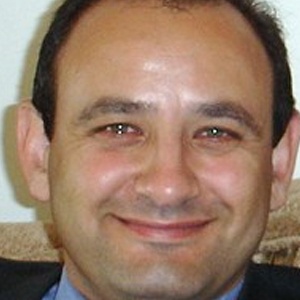
Given Courses:
Introduction to Public Health, epidemiology, biostatistics, Environmental and occupational Health, Research methodology, Environmental epidemiology, Public Health issues in Palestine, Health assessment.
Office Hours: Saturday 9-10, Sunday 11-14, Wednesday 14-15,
Education
Dr. El Sharif had her doctoral degree in Medical Sciences-Epidemiology in year 2003 from the KULeuven in Belgium; Masters of Public Health (MPH) in 1995 from the Hebrew University in Jerusalem, and a bachelor degree in science “biology-medical technology” in 1986 from Jordan University.
Work Experience
Dr. El Sharif Joined Al Quds University in the year 1998. She became an Associate Professor of Public Health in 2009. She is the coordinator for the Master of Public Health program and master of Infectious diseases of prevention and control. El Sharif participated in the development of several education programs. She headed the committees of developing the bachelor of Public Health nutrition, Master of public health program development, and the Infectious diseases of prevention and control.
Research interest
Dr. El Sharif is an experienced research and has a wide base of research in Public and Medical research. She supervised several PhD and at least 30 master theses in Public Health. The main areas of research are non-communicable diseases and children’s health. She has a wide experience in research related to diabetes epidemiology and management, gestational diabetes, iron deficiency among women and children, cancer epidemiology, asthma and allergies epidemiology and medication misuse, lead exposure in children and COVID 19 healthcare workers health exposures. Also, she has research experience on infants feeding practices and the timed targeted counseling for promoting newborn and child health. She did a lot of reviewing research paper manuscripts submitted for international journals such as the EMJH, Asthma Journal, Pediatric allergy Journal, Occupational and Environmental Health Journal, Pediatric Pulmonology Journal, Allergy Journal, diabetes care, Environmental Perspective Journal, Vaccine, Primary Care Diabetes and others.
She has about 30 publications since year 2000. Several manuscripts are now submitted and several others are in the process of preparation. Here are the last 5 years publications
Nuha El Sharif & Asma Imam. Current Status of Diabetes in Palestine: Epidemiology, Management, and Healthcare System. Handbook of Health Care in the Arab World, 2019, Springer publications.
Weinmayr, G., Jaensch, A., Ruelius, AK. et al. and the ISAAC Phase Two Study Group. Can environment or allergy explain international variation in prevalence of wheeze in childhood?, Eur J Epidemiol (2019) 34: 509.
E Sharif N. Reliability of Information Abstracted from Diabetic Patients’ Medical Records in Palestine. Health Science Journal Vol.11 No.5:526, 2017
Rabadi H., El Sharif N. Effectiveness of timed and targeted counselling about feeding and caring practices for infants and young children to mothers in West Bank: a randomised controlled trial. The Lancet , 2017
N. El Sharif, I. Samara, I. Titi and A. Awartani .Compliance with and knowledge about diabetes guidelines among physicians and nurses in Palestine . EMHJ • Vol. 21 No. 11 • 2016
Weinmayr G, Forastiere F, Büchele G, Jaensch A, Strachan DP, Nagel G; ISAAC Phase Two Study Group. Overweight/obesity and respiratory and allergic disease in children: international study of asthma and allergies in childhood (ISAAC) phase two. PLoS One. 2014 Dec 4;9(12):e113996
Titi I, El Sharif N. Prenatal and postnatal care of gestational diabetes and gestational hypertension in clinics for high-risk pregnancies in the West Bank, occupied Palestinian territory: a follow up comparative study. The Lancet Volume 328. Page S35, 5 December 2013

Dr. Maha Nubani Husseini is an assistant professor of Public Health/ Health Promotion at the faculty of Public Health. She joined the faculty in 2002.
Dr. Maha Nubani Husseini is a Faculty member at the department of Public Health Nutrition and the head of the Quality Assurance Committee and the Scientific Research Committee of the School of Public Health
Dr. Nubani Husseini has a number of research papers, including:
Nubani-Husseini M, Berry E, Abdeen Z, Donchin M. Dietary patterns and physical activity among Palestinian female schoolchildren in East Jerusalem. SEEJPH 2016,
Nubani-Husseini M, Donchin M . School-based intervention to promote healthy nutrition and physical activity in Palestinian girls – Process evaluation. SEEJPH 2020,
Dr. Nubani Husseini received her Ph.D. in Public Health/ Health Promotion in 2016 from Braun School of Public Health/ Hebrew University, Master degree In Public Health from Al-Quds University in 2004, and Bachelor degree in Nursing from Arab Colleges of Medical Professions in 1984.
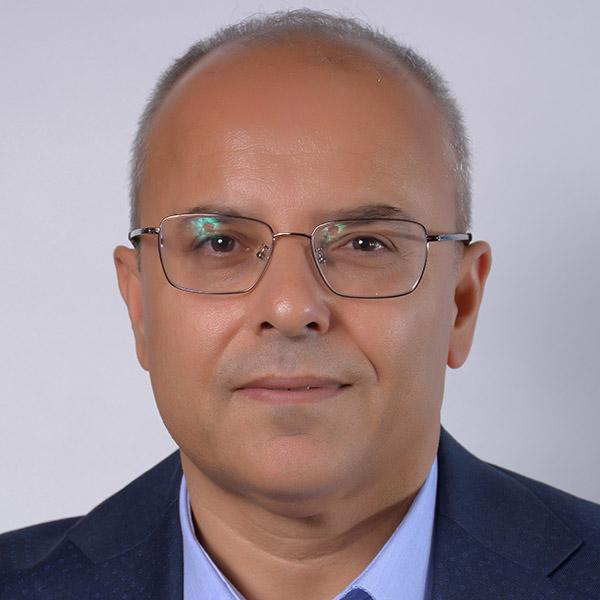
Motasem Hamdan is a professor of health policy and management at the School of Public Health, Al-Quds University, Jerusalem, Palestine. He has bachelor and master degrees in health management from Hacettepe University in Turkey between 1990-1996 and a doctoral degree in Medical and Social Science (Health Policy) from the Catholic University of Leuven (KULeuven) in Belgium in 2003. He joined Al-Quds in 1998 and was among the founding members of the School of Public Health, was a dean of public health between 2012-2019.
Prof. Hamdan is an expert in health policy and health system development and has a profound experience in the Palestinian health care system and international health organizations. He served as senior health policy advisor to the Palestinian Ministry of Health and consultant for many of national and international health organizations. He was the national program officer in the WHO office for Palestine between 2007-2011. Prof. Hamdan is an author of more than 25 peer reviewed articles, member of editorial boards of many internationally refereed journals and serves on a variety of national and international advisory boards.
1. Eskin M, Baydar N, Harlak H, Hamdan Motasem, et al. Cultural and interpersonal risk factors for suicide ideation and suicide attempts among Muslim college students from 11 nations. Journal of Affective Disorders 294 (2021) 366–374.
2. Ulrich Laaser, Vesna Bjegovic-Mikanovic, Motasem Hamdan, Flavia Senkubuge and Michaela Michel-Schuldt. Editorial article: Women’s Health in Low-Resourced Countries: Epidemiology, Governance, Advocacy, Capacity. Front. Public Health, 09 December 2020. https://doi.org/10.3389/fpubh.2020.602467.
3. Mehmet Eskin, Nazlı Baydar, Mayssah El-Nayal, Nargis Asad, Isa Multazam Noor, Mohsen Rezaeian, Ahmed M. Abdel-Khalek, Fadia Al Buhairan, Hacer Harlak, Motasem Hamdan, Anwar Mechri, Ulker Isayeva, Yousef Khader, Aqeel Khan, Alaa Al Sayyari, Albaraa Khader, Bahareh Behzadi, Cennet Şafak Öztürk, Laifa Annisa Hendarmin, Murad Moosa Khan, Hazem Agha. Associations of Religiosity, Attitudes towards Suicide and Religious Coping with Suicidal Ideation and Suicide Attempts in 11 Muslim Countries. Soc Sci Med. 2020 Sep 24;265:113390. doi: 10.1016/j.socscimed.2020.113390.
4. Eskin M, Tran U, Carta MG, Poyrazli S, Flood C, Mechri A, Shaheen A, Janghorbani M, Khader K, Yoshimasu K, Sun JM, Kujan O, Abuidhail J, Aidoudi K, Bakhshi S, Harlak H, Moro MF, Phillips L, Hamdan Motasem, Abuderman A, Tsuno K, Voracek M. “Is individualism suicidogenic? Findings from a multi-national study of young adults from 12 countries”. Eskin M, Tran U, Carta MG, Poyrazli S, Flood C, Mechri A, Shaheen A, Janghorbani M, Khader K, Yoshimasu K, Sun JM, Kujan O, Abuidhail J, Aidoudi K, Bakhshi S, Harlak H, Moro MF, Phillips L, Hamdan Motasem, Abuderman A, Tsuno K, Voracek M. “Is individualism suicidogenic? Findings from a multi-national study of young adults from 12 countries”. Front. Psychiatry, 03 April 2020 | https://doi.org/10.3389/fpsyt.2020.00259.
5. Eskin M; Senel Poyrazli; Mosen Janghorbani; Mauro Giovanni Carta; Ulrich S; Anwar Mechri; Hamdan Motasem; et al. The Role of Religion on Suicidal Behavior, Attitudes and Psychological Distress in University Students: A Multinational Study”. Transcult Psychiatry. 2019 Feb 8:1363461518823933. doi: 10.1177/1363461518823933.
6. Elham Kateeb, Abdullah Hassan, Motasem Hamdan, Fidah Musa. Dental caries experience and related factors among a clustered random sample of students in occupied Palestinian territory: a cross-sectional study. The Lancet Volume 393, Special Issue 1S1-S55, March 2019.
7. Eskin, M., AlBuhairan, F., Rezaeian, M. Abdel-Khalek A, Harlak H, El-Nayal M, Asad N, Khan A, Mechri A, Noor IM, Motasem Hamdan, et al. Suicidal Thoughts, Attempts and Motives Among University Students in 12 Muslim-Majority Countries. Psychiatric Quarterly. 2018 Nov 29. https://doi.org/10.1007/s11126-018-9613-4.
8. Hamdan Motasem, Saleem Abd-Raouf. Changes in patient safety culture in Palestinian public hospitals: impact of quality and patient safety initiatives and programs. J Patient Saf. 14(3):127-132, September 2018. doi: 10.1097/PTS.0000000000000522.
9. Najjar Sh, Baillien E, Vanhaecht K, Hamdan M, et al. “Similarities and differences in the associations between patient safety culture dimensions and self-reported outcomes in two different culture settings: A national cross-sectional study in Palestinian and Belgian hospitals”. BMJ Open 2018;8:e021504. doi:10.1136/bmjopen-2018-021504.
10. Hamdan M, Abu Hamra AA. Burnout among workers in emergency departments in Palestinian hospitals: Prevalence and associated factors. BMC Health Serv Res. 2017 Jun 15;17(1):407. doi: 10.1186/s12913-017-2356-3.
11. Tucktuck M, Darkhawaja R, Areqat T, Mansour S, Giacaman R, Hamdan M. The role of non-governmental organizations in the health sector in the occupied Palestinian territory: a cross-sectional qualitative study. The Lancet, Volume 390, Special Issue, S29, Research in the Occupied Palestinian Territory 6, August 2017. DOI: http://dx.doi.org/10.1016/S0140-6736(17)32080-9
12. Wafa’ J Zaghari, Hamdan M. Patient safety culture in Palestinian hospital pharmacies: a cross-sectional survey. The Lancet, Volume 390, S1-S42, Research in the Occupied Palestinian Territory 5, August 2017. DOI: http://dx.doi.org/10.1016/S0140-6736(17)32017-2
13. Massad S, Hamdan M, Agha H, Amr A, Donohue R. Sports Nutrition Supplement Use: Comparison between a USA and a Palestinian community. The International Journal of Science Commerce and Humanities, Volume No 5 No 2 June 2017.
14. Abu-El-Noor NI, Hamdan M, Abu-El-Noor MK, Radwan AS, Alshaer AA. Safety Culture in Neonatal Intensive Care Units in the Gaza Strip, Palestine: A Need for Policy Change. J Pediatr Nurs. 2017 Jan 9. pii: S0882-5963(16)30470-5. doi: 10.1016/j.pedn.2016.12.016.
15. Abu-Hamad B, Hamdan M, Al-Saqqa H. Assessment of patient safety culture in the Gaza Strip Hospitals. International Journal of Development Research. Vol. 06, Issue, 06, pp. 8135-8140, June, 2016.
16. Hamdan M. (Contributor) 50 years of professional public health workforce development. ASPHER’s 50th Anniversary Book. (Editors. Edited by: Foldspang A, Müller-Nordhorn J, Bjegovic-Mikanovic V, Otok R). The Association of Schools of Public Health in the European Region (ASPHER), 2016. http://aspher.org/download/80/anniversary-book-may2016.pdf
17. Hamdan M. The role of the civil society in health. A Global Public Health Curriculum (2nd Edition), 2016. (Ed Ulrich Laaser, Florida Beluli). South Eastern European Journal of Public Health. Special Volume 2016. DOI: 10.4119/UNIBI/SEEJPH-2015-106
18. Eskin, M., Sun, J.-M., Abuidhail, J., Yoshimasu, K., Kujan, O., Janghorbani, M., Flood, C., Carta, M. G., Tran, U. S., Mechri, A., Hamdan, M., Poyrazli, S., Aidoudi, K., Bakhshi, S., Harlak, H., Moro, M. F., Nawafleh, H., Phillips, L., Shaheen, A., Taifour, S., Voracek, M., & Tsuno, K. Suicidal behavior and psychological distress in university students: A 12-nation study. Arch Suicide Res. 2016 Jul 2;20(3):369-88. doi: 0.1080/13811118.2015.1054055.
19. Hamdan M, Abu Hamra A (2015). Workplace violence towards workers in the emergency departments of Palestinian hospitals: A cross sectional study. Journal for Human Resources for Health, 2015 May, 7;13:28. doi: 10.1186/s12960-015-0018-2.
20. Rashed A, Hamdan M (2019). “Physicians and nurses perceptions and attitudes towards incident reporting in Palestinian hospitals”. Journal of Patient Safety. Journal of Patient Safety: September 2019 – Volume 15 – Issue 3 – p 212–217. doi: 10.1097/PTS.0000000000000218.
21. Hamdan M (2013), Measuring safety culture in Palestinian neonatal intensive care units using the Safety Attitudes Questionnaire. J Crit Care. 2013 Jul 17. pii: S0883-9441(13)00177-9. doi: 10.1016/j.jcrc.2013.06.002.
22. Hamdan M, Saleem A (2013). Assessment of the patient safety culture in Palestinian public hospitals. International Journal of Quality in Health Care. 25, issue 2; pp. 1–9. doi: 10.1093/intqhc/mzt007
23. Najjar Sh. Hamdan M. et al (2013). Detection of adverse events using the Global Trigger Tool approach across different departments: A prospective study in two Palestinian non-governmental hospitals. Int J Qual Health Care. 2013 Dec;25(6):640-7. doi: 10.1093/intqhc/mzt066. Epub 2013 Oct 17.
24. Najjar S, Hamdan M, Baillien E, Vleugels A, Euwema M, Sermeus W, Bruyneel L, Vanhaecht K (2013). The Arabic of the hospital survey on patient safety culture: a psychometric evaluation in Palestinian sample. BMC Health Serv Res. 2013 May 24;13:193. doi: 10.1186/1472-6963-13-193.
25. Kitaneh M, Hamdan M (2012). Workplace violence against physician and nurses in Palestinians public hospitals: A retrospective cross-sectional study. BMC Health Services Research Journal, 12:469.
26. Hamdan M, Al-Akhras N., (2009). “House to house survey of disabilities in rural communities in the north of the West Bank”. WHO, East Mediterranean Health Journal, Vol. 15, No. 5, 2009.
27. Hamdan M, (2008). “Health policy and planning in Palestine: crossing from ambitions to realities”, Bridges Magazine, WHO West Bank and Gaza, June 2008.
28. Hamdan M., (2003). The dynamics of health policy development during transition and under uncertainty: what can be learned from the Palestinian experience? Acta Hospitalia. Issue 3/2004; pp 69-77.
29. Hamdan M., Defever M., (2003). Human resources for health in Palestine: A policy analysis. Part I: Current situation and recent developments. Health Policy. Vol 64(2): 243-259.
30. Hamdan M., Defever M., (2003). Human resources for health in Palestine: A policy analysis Part II: The process of policy formulation and implementation. Health Policy. Vol 64(2): 261-273.
31. Hamdan M., Defever M., Abdeen Z. (2003). Organising Health Care within Political Turmoil: The Palestinian Case. The International Journal for Health Planning and Management, Vol 18 (1):63-88.
32. Hamdan M., Defever M., (2002). A ‘transitional’ context for health policy development: the Palestinian case. Health Policy. Vol 59(3):193-207.
33. Defever M., Hamdan M., (2001). Who will care for you? Un-met Needs in the Health Care System. Report prepared for the King Baudouin Foundation, Brussels. ISBN: 2-87212-336-9.

Given Courses:
Introduction to Public Health, epidemiology, biostatistics, Environmental and occupational Health, Research methodology, Environmental epidemiology, Public Health issues in Palestine, Health assessment.
Office Hours: Saturday 9-10, Sunday 11-14, Wednesday 14-15,
Education:
Dr. El Sharif had her doctoral degree in Medical Sciences-Epidemiology in year 2003 from the KULeuven in Belgium; Masters of Public Health (MPH) in 1995 from the Hebrew University in Jerusalem, and a bachelor degree in science “biology-medical technology” in 1986 from Jordan University.
Work Experience
Dr. El Sharif Joined Al Quds University in the year 1998. She became an Associate Professor of Public Health in 2009. She is the coordinator for the Master of Public Health program and master of Infectious diseases of prevention and control. El Sharif participated in the development of several education programs. She headed the committees of developing the bachelor of Public Health nutrition, Master of public health program development, and the Infectious diseases of prevention and control.
Research interest
Dr. El Sharif is an experienced research and has a wide base of research in Public and Medical research. She supervised several PhD and at least 30 master theses in Public Health. The main areas of research are non-communicable diseases and children’s health. She has a wide experience in research related to diabetes epidemiology and management, gestational diabetes, iron deficiency among women and children, cancer epidemiology, asthma and allergies epidemiology and medication misuse, lead exposure in children and COVID 19 healthcare workers health exposures. Also, she has research experience on infants feeding practices and the timed targeted counseling for promoting newborn and child health. She did a lot of reviewing research paper manuscripts submitted for international journals such as the EMJH, Asthma Journal, Pediatric allergy Journal, Occupational and Environmental Health Journal, Pediatric Pulmonology Journal, Allergy Journal, diabetes care, Environmental Perspective Journal, Vaccine, Primary Care Diabetes and others.
She has about 30 publications since year 2000. Several manuscripts are now submitted and several others are in the process of preparation. Here are the last 5 years publications
- Nuha El Sharif & Asma Imam. Current Status of Diabetes in Palestine: Epidemiology, Management, and Healthcare System. Handbook of Health Care in the Arab World, 2019, Springer publications.
- Weinmayr, G., Jaensch, A., Ruelius, AK. et al. and the ISAAC Phase Two Study Group. Can environment or allergy explain international variation in prevalence of wheeze in childhood?, Eur J Epidemiol (2019) 34: 509.
- E Sharif N. Reliability of Information Abstracted from Diabetic Patients’ Medical Records in Palestine. Health Science Journal Vol.11 No.5:526, 2017
- Rabadi H., El Sharif N. Effectiveness of timed and targeted counselling about feeding and caring practices for infants and young children to mothers in West Bank: a randomised controlled trial. The Lancet , 2017
- N. El Sharif, I. Samara, I. Titi and A. Awartani .Compliance with and knowledge about diabetes guidelines among physicians and nurses in Palestine . EMHJ • Vol. 21 No. 11 • 2016
- Weinmayr G, Forastiere F, Büchele G, Jaensch A, Strachan DP, Nagel G; ISAAC Phase Two Study Group. Overweight/obesity and respiratory and allergic disease in children: international study of asthma and allergies in childhood (ISAAC) phase two. PLoS One. 2014 Dec 4;9(12):e113996
- Titi I, El Sharif N. Prenatal and postnatal care of gestational diabetes and gestational hypertension in clinics for high-risk pregnancies in the West Bank, occupied Palestinian territory: a follow up comparative study. The Lancet Volume 328. Page S35, 5 December 2013
Featured News
 November 4, 2025
November 4, 2025
 October 22, 2025
October 22, 2025
 October 22, 2025
October 22, 2025
 October 22, 2025
October 22, 2025
 October 22, 2025
October 22, 2025
 October 21, 2025
October 21, 2025









